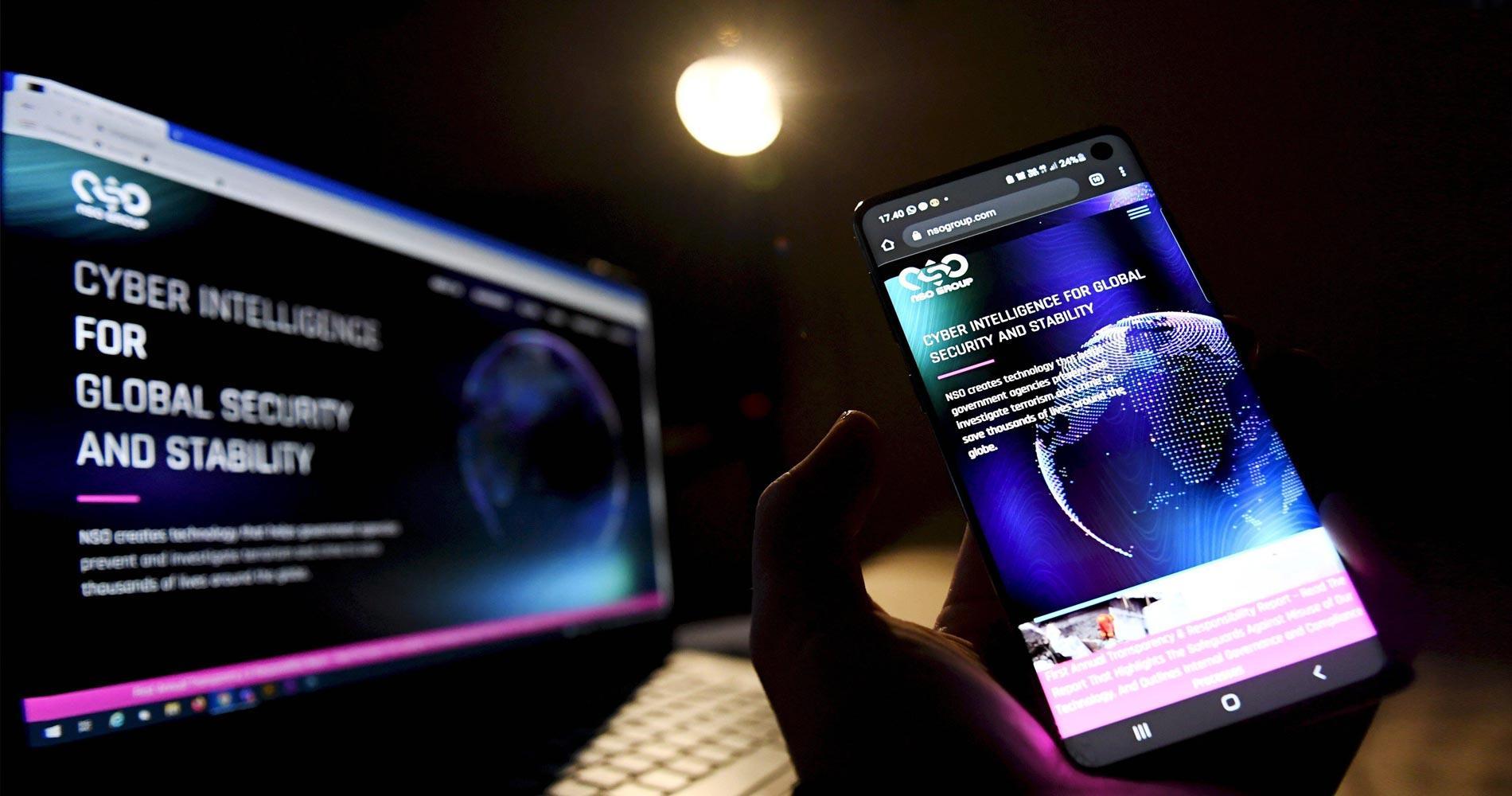Digital authoritarianism, the uncontrolled und unlawful monitoring of online activity aiming to manipulate the public, suppress free speech and spread disinformation, is rapidly becoming a matter of concern for many. The NSO Group’s “Pegasus” spyware is a perfect example of the potential danger of spyware tools when used against the general population. Governments are using Pegasus to control information flows and assert their power.
Gustav Fauskanger Pedersen, 22 February 2023
Pegasus is a highly advanced and sophisticated spyware developed by the Israeli cyber-arms company NSO Group. The software is designed to infiltrate and monitor mobile devices, and can extract a wide range of sensitive information, such as text messages, call logs, emails, and location data, from the targeted device.
The use of Pegasus and other similar spyware tools has raised serious concerns about the violation of privacy and human rights, as the software allows governments and other organizations to conduct surveillance on individuals without their knowledge or consent and access sensitive information that could be used to silence dissenting voices or target individuals for arrest or harassment.
The CEO of the NSO Group, Yaron Shohat, has recently apologized for selling the software to repressive governments, who in turn allegedly have used the software to spy on human rights and democracy activists, as well as journalists.
According to the news organization Al Jazeera, people targeted by the Pegasus spyware include Palestinian rights workers, Thai democracy activists and El Salvadorean media workers, as well as the inner circle of murdered Saudi journalist Jamal Khashoggi. Spanish journalist Ignacio Cembrero has accused the Moroccan government of using the spyware to monitor journalists, activists and opposition figures, both in and outside of Morocco.
Although the Moroccan government has denied the claims made by Cembrero and launched a civil lawsuit against the journalist, the French nonprofit media Forbidden Stories as well as Amnesty International have found that the Pegasus spyware had indeed been used to monitor the phones of several activists and journalists in Morocco.
CEO Shohat has stated that the company now sells the Pegasus software only to countries to whom the US sells weapons. However, John Scott-Railton, a security researcher at Citizen Lab, has criticized this comparison, and compared selling Pegasus to selling long-range nuclear missiles, owing to the spyware’s hugely destructive potential.
Once installed, the Pegasus software, which is delivered via a seemingly innocent text message or link, can operate covertly without the knowledge or consent of the device’s owner.
One of the most concerning aspects of Pegasus is its ability to bypass encryption and other security measures on mobile devices, making it an extremely effective tool for intelligence agencies and other government entities looking to gather information on individuals or groups without being detected. This means that even those who take steps to protect their privacy may still be vulnerable to surveillance.
Recently, the United States Supreme Court allowed WhatsApp to pursue a lawsuit against the NSO Group. The Meta-owned messaging service is only one of many tech companies pursuing legal action against the cyber-arms company, alleging that the NSO Group has been monitoring around 1400 individuals through their messaging app.
In a statement about the lawsuit, Meta stated “NSO’s spyware has enabled cyberattacks targeting human rights activists, journalists and government officials … We firmly believe that their operations violate US law and they must be held to account for their unlawful operations.”
The NSO Group claims that it only sells its products to government and intelligence agencies for the purposes of fighting crime and terrorism. Yet there are numerous reports of the software being used to target journalists, human rights activists and other individuals and groups critical of the governments that have purchased the software. This has led to criticism from human rights organizations, security experts, and other concerned parties.
Amnesty International has stated that: “The use of Pegasus by governments to spy on human rights defenders and journalists is a gross abuse of technology and a serious violation of human rights.” The former CIA employee and whistleblower Edward Snowden has also spoken out against the use of Pegasus and other spyware tools, saying, “These tools are not about crime, they’re about control. They’re about power. And that power is being used to violate the rights of people around the world.”
Pegasus is a highly advanced and sophisticated spyware that has been used in a number of high-profile cyber espionage campaigns. While it can be used to fight crime and terrorism, the software has also been used to target journalists, human rights activists and other individuals and groups who are critical of the governments that have purchased and used the software. The use of Pegasus and other similar spyware tools raises serious concerns about the violation of privacy and human rights. It is important for individuals to be aware of the potential dangers of such tools and for governments and companies to be held accountable for their use.







